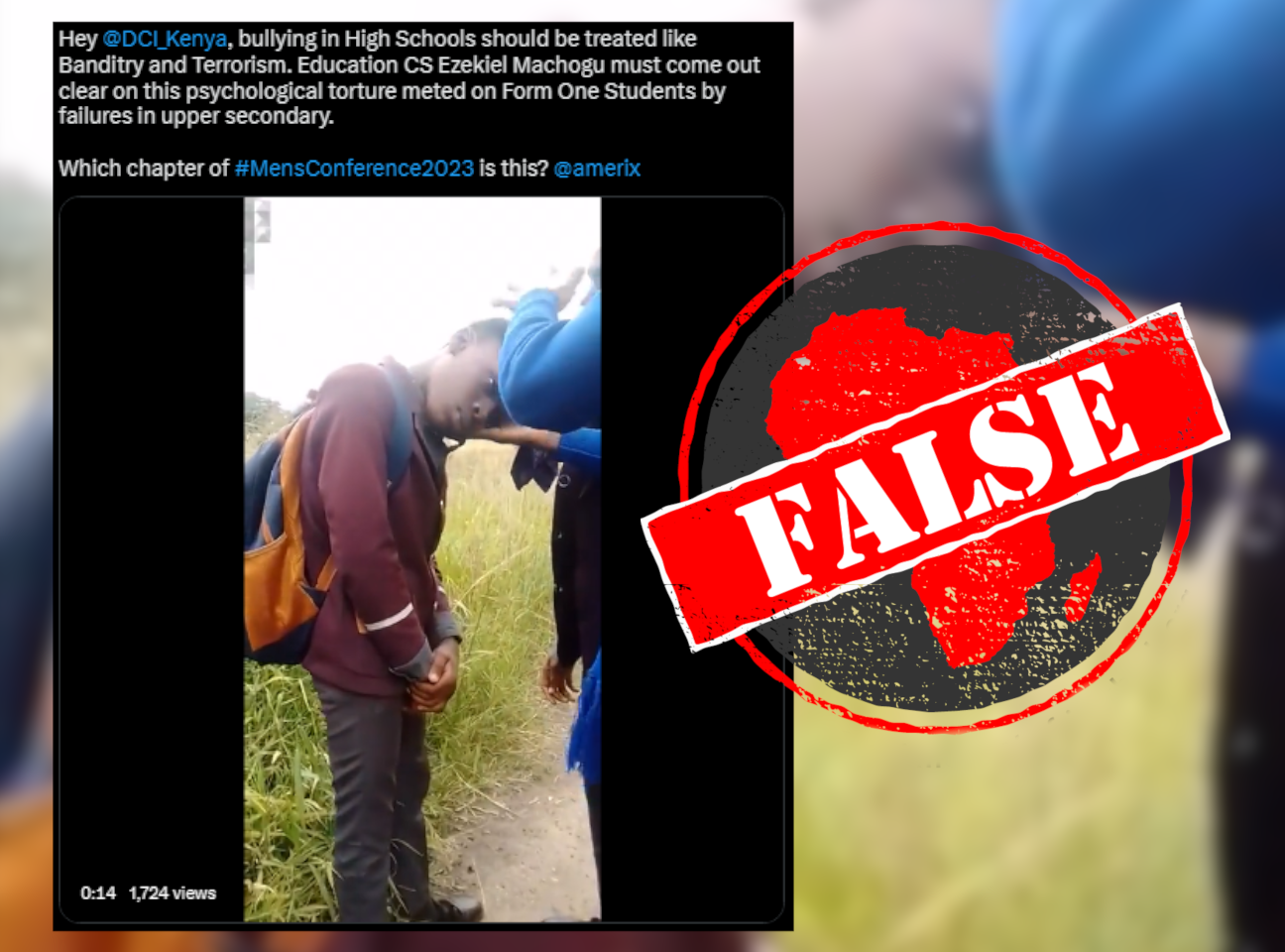IN SHORT: A video and photos circulating on social media claims to show two high school boys being bullied by fellow students in Kenya. However, the incident took place in Zimbabwe, not in Kenya.
A video posted on Twitter on 14 February 2023 shows a disturbing incident, which appears to be bullying between schoolboys.
It shows two boys wearing maroon blazers with their ties knotted together. One of the boys is forced to slap the other, before one of the bullies then appears to demonstrate how to slap properly, by tilting the boy’s head on one side and delivering two heavy slaps.
The video was accompanied by a post that read: “Hey @DCI_Kenya, bullying in high schools should be treated like banditry and terrorism. Education CS Ezekiel Machogu must come out clear on this psychological torture meted on form one students by failures in upper secondary.”
The @DCI_Kenya account is the official handle of the directorate of criminal investigations (DCI), the Kenyan police department that investigates crime.
Ezekiel Machogu is the cabinet secretary (CS) for education. In urging the police and CS to act, the tweet implies the incident took place at a school in Kenya.
The same video can be found on various Kenya-based social media channels, such as here and here on Twitter, and here and here on Facebook.
The videos shared on social media have been viewed more than 70,000 times.
But what’s the context to this video? We checked.

Bullying an issue in Kenya, but this incident from Zimbabwe
Article 53 of the Kenyan constitution states that every child has the right to be protected from abuse and the Basic Education Act 2013 also seeks to protect children from corporal punishment and mental harassment.
Despite this, there have been incidents of bullying in Kenyan schools, with the media pondering how to stop them.
However, a reverse image search of a screenshot of the video reveals that it was filmed at Churchill Boys High School in Harare, Zimbabwe.
The incident was shared on social media by Zimbabweans, such as here, here and here. It was also reported by various Zimbabwean media, here, here and here, on 10 February.
The uniform worn by the boys in the video is that of Churchill Boys High School, judging by photos on the school's website and social media pages.
The claim that the video of school bullying is from Kenya is false. The incident took place in Zimbabwe.
Republish our content for free
For publishers: what to do if your post is rated false
A fact-checker has rated your Facebook or Instagram post as “false”, “altered”, “partly false” or “missing context”. This could have serious consequences. What do you do?
Click on our guide for the steps you should follow.
Publishers guideAfrica Check teams up with Facebook
Africa Check is a partner in Meta's third-party fact-checking programme to help stop the spread of false information on social media.
The content we rate as “false” will be downgraded on Facebook and Instagram. This means fewer people will see it.
You can also help identify false information on Facebook. This guide explains how.



Add new comment